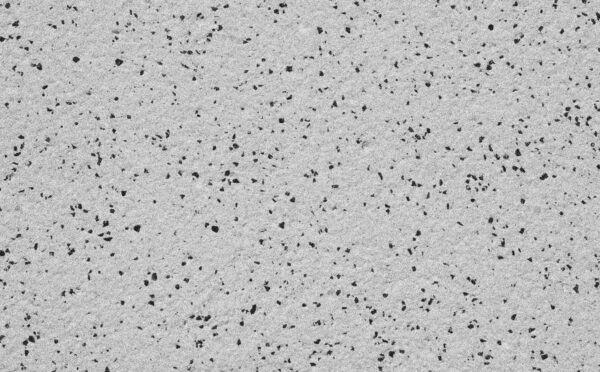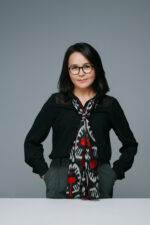ARTICLE: Rabigül’s Story – the story of an Uyghur woman who chose Warsaw to escape persecution by the Chinese government

The arrest of my loved ones by the Chinese government in March 2017, their imprisonment in concentration camps, and my constant exposure to cross-border repression by the Chinese police meant that I was somehow forced to become a human rights defender. Until then, I had tried to stay away from politics, because in China it is very risky for people like us, from minority groups (as the Chinese government calls us, although we do not accept it), to express our views, especially if we are Uyghurs. In China, it is a serious crime to acknowledge any ideology other than that preached by the Communist Party, and it is forbidden to express opinions that contradict the government line. As a result, from childhood, we were told not to get involved in politics and to concentrate on our own work.
However, we could not remain silent in the face of the genocide being perpetrated by the Chinese government against the indigenous peoples of East Turkestan (Xinjiang) – the Kazakhs, the Kyrgyz and especially the Uyghurs. We protested against the Chinese government’s unjust arrests of innocent members of our families, relatives and loved ones, and against their imprisonment in concentration camps and prisons; we had no choice but to get involved in politics. We fought and continue to fight for the most basic human rights. After my family members were arrested, I too lost contact with my relatives who were at large. Can you imagine, in this age of rapid technological development, not being able to talk to them for years? At the end of my struggle to contact them, which is one of my most basic rights, I was blacklisted by the Chinese authorities. This was the result of my efforts to free my relatives, to fight to be the voice of my family and the millions of people like them who have been arrested without charge. During and after my studies in Turkey, I was constantly threatened by the Chinese police.
After defending my PhD in 2023, I hoped that the situation would change if I found a job in an academic institution, but this did not happen. As I am not a Turkish citizen, the state security agencies could not protect me from the Chinese threat. And yet, security is essential for a normal life. So, on the recommendation of friends, I applied for the ICORN programme in April 2023. A year later, I received an email informing me that the Warsaw Observatory of Culture had invited me to Warsaw and that if I accepted, I would be the first ICORN resident in the city. When I saw the words ‘Poland’ and ‘Warsaw’ in the acceptance letter, the first thing that came to my mind was Maria Skłodowska-Curie. “Was I really going to the country where my idol, a Nobel Prize laureate, a great scientist whose fan I had been since high school, was born and raised?, I asked myself on the train. I was excited, I read the email over and over again. I even translated it into Turkish to make sure I understood the content and read it again. I sent an email to the ICORN team saying that I needed to think about it. If you are reading this now, you are probably thinking: “Your life is in danger, why are you still hesitating?” And you would be right, although at that moment I had something else on my mind. Because I really admired Maria Skłodowska-Curie, I already knew something about Poland. Then I read Ümit Şimşek’s book Bir Polonya Klasiği Uçan Üniversite (Flying University: Polish Classics), which refreshed my knowledge of the country’s history. This book inspired me a lot, and I will go into more detail about it.
However, what I knew about Poland was not enough, and I had to do some research. After all, I was going to a completely new place with a different culture and way of life. I had no Uyghur friends or acquaintances from other communities here. I am a very outgoing person, so I had friends and relatives in my hometown and many friends in Beijing, in Turkey, as well as in Europe, America and other parts of the world. I searched and checked, but I did not know anyone in Poland. Then I remembered that an old friend of mine, a Uyghur, came here many years ago on an Erasmus programme. I wrote to him asking for information, and he described the place in such a way that you could feel how much he loved it in every sentence. In the end, I said to myself: I do not take my loved ones with me everywhere I go, so I will manage to create a new environment for myself here, to make new friends.
That was when I wrote to ICORN that I wanted to go to Warsaw, and I immediately got an answer – I was contacted by Ania and Ola from the Warsaw Observatory of Culture. The visa preparation and other procedures went very smoothly. I am sure that Ania, Ola and their colleagues from WOK had a lot of work to do; they had to run around and try very hard to get the visa, while I only had to collect the necessary documents. In preparation for the trip, I watched YouTube videos about Poland, especially Warsaw, and did some reading.
On 3 September 2024, I finished the eight-year stage of my life in Turkey and flew to Warsaw. Ola picked me up at the airport. We had video chatted before and corresponded by email. During those few months of online communication, I felt good energy on their part, so at the airport we hugged without hesitation. The warm welcome made me feel confident. On the way from the airport, Ola gave me a list that Sviatlana had prepared of the most important information for someone visiting Warsaw for the first time. Regardless of my prior knowledge of the city, tips gathered by someone who has lived here and experienced it first-hand were definitely more up-to-date and helpful. I found the list extremely useful and still keep it with me.
When we arrived at the place that had been rented for me, Anna met us at the door. The girls had sent me details of two apartments they had looked at with me in mind and asked me which I preferred. On arrival, Anna asked about my food preferences and any allergies. I was impressed that she always asked my opinion on these matters. Anna did the shopping for me that day and brought many of the things I needed. All these little things were very precious and important to me. After a day’s rest, I visited the WOK headquarters, and everyone turned out to be extremely warm people. It was terribly hot and I spent the whole day pestering Sviatlana to go to the bank and activate my phone card; I would not have been able to do it alone, without the help of my colleagues. To this day, there are times when I need her help in the office, which everyone used to complain about. I am eternally grateful to them.
I arrived in Warsaw in the high season and really enjoyed this city full of greenery and trees. I visited many places that I had only seen on YouTube before I arrived. The old town, museums and parks really impressed me. It is said that Warsaw has been reborn from the ashes. It was a pleasure to see the renewed landscape of this city – a city whose historical traces I am still discovering.
One of the things that drew me here was the river. I was born and raised in a city with a river that flows down the slopes of the majestic Tian Shan, or Heavenly Mountains, which divide East Turkestan into southern and northern parts. My homeland is the sea region of the world; we only have lakes and rivers, so people from our part of the world get very excited at the sight of the sea. I, on the other hand, cried with joy because I had arrived in a city with a river. Walking along the Vistula, sitting on its banks and thinking about my homeland comforted me when I was homesick. One day, while I was walking, I finished listening to the audiobook of the Uyghur version of Marie Skłodowska-Curie’s autobiography. I had forgotten to use the Polish name of this great scientist because she was always written as Maria Curie in the books and textbooks I had read, but after arriving in Warsaw and being corrected three times by others, I vowed never to forget it again. Now I remind my friends in other countries not to forget Maria’s Polish surname.
Sometimes, when I walk the streets of Warsaw, I think of the historical details in the Turkish writer Ümit Şimşek’s book about the Flying University. One hundred years ago, the Poles suffered a tragedy; they were forbidden to be educated in their mother tongue, but they did not give up and fought courageously for freedom. A similar fate awaits the Uyghurs today. The Chinese government has banned education in the mother tongues of many peoples, especially the Uyghurs and Mongolians. One of the reasons why Şimşek’s book resonates so deeply with Uyghurs in the diaspora may be the courage of the Poles who have managed to keep their mother tongue alive despite such difficult conditions. One of our intellectuals even listed it as one of the must-read books for Uyghurs in the diaspora. Inspired by this book, a group of volunteers – myself included – came together in 2020 and founded the Uyghur Mother Tongue Online School, which provides education to Uyghur children in their mother tongue. The curriculum includes Uyghur literature, history and cultural information. Classes are taught in a digital environment, free of charge and on a voluntary basis. Although they take place on weekends and last only a few hours, we have had good results so far. And now, having found myself in a place where something like the Flying University once operated, I am experiencing the same fate.
Living in Warsaw has given me many opportunities. A month after my arrival, thanks to the support of the WOK, I went to Paris for a conference. We spent a very productive week with young Uyghurs from different parts of the world, and I also visited the grave of Marie Skłodowska-Curie. This trip fulfilled one of my dreams. I also visited the ICORN office in Norway, where I met my friends. I had the opportunity to personally thank the ICORN team for giving me the opportunity to live in a safe environment and to realise my dreams.
During my time in Poland, I changed my perspective on some things. I never liked autumn; I associated the yellow leaves falling to the ground with sadness and separation. But the autumn scenery I saw in Warsaw and Kraków amazed me. It was the first time I had enjoyed the autumn landscape so much. I cannot remember what it was like for me before, but during the last eight years, when I was struggling with many difficulties, I simply did not notice such beautiful little things. Perhaps I ignored them because there was not enough joy and peace in my life to enjoy them. After arriving in Warsaw, I experienced autumn to the fullest and spent a lot of time discovering the beauty of nature. Before my arrival, my friends used to say that it was very cold here, and I would reply: “Don’t worry, I was born and raised in a cold country, I’m used to it”. But the truth is that I have not experienced such a cold winter since I went to university in 2006. When the skin on my hands cracked, I felt the frost I had experienced a long time ago. I said I was used to this kind of weather, but I had forgotten what it was like to have a frozen nose – and here I was feeling it again. It is interesting that a person can be happy in cold weather because it reminds him of his home.
Homesickness is a feeling that affects people who are separated from their homeland, especially when it is the result of political persecution. Abroad, we look for things that remind us of our lost home, and I always do. It can be water, mountains, springs, trees, grass, even the frosty air or the sound of water in a river.
In Warsaw, I have learned to spend time with myself. I do not have as many friends as I used to, and I am alone most of the time. Thanks to this solitude, I have been able to listen to myself very carefully, I have done a lot of thinking and reading, and, most importantly, I have gained more self-awareness. The only thing I have had trouble getting used to is the short winter days and the darkness that sets in at three o’clock. Fortunately, the days are getting longer now. I am glad that I have survived these long nights without falling into depression. I do not have the luxury of wallowing in sadness because I am still fighting for freedom and carrying the burden of responsibility. I cannot allow myself to relax just because I am safe in a free country. I still have no news of my family and relatives, and genocide is still being committed against my people. If I had not gone abroad to study, I could have been one of those suffering in concentration camps and prisons, or one of those whose freedom is restricted even when they are free. But fortunately, although I am ashamed to use the word ‘fortunately’ here, I live in a free world. It is therefore my duty to be the voice of those who cannot speak.
We live in strange times: one side of the world is burning in armed conflict, while on the other, in East Turkestan, which I call the ‘forgotten geography’, people have been and are still victims of genocide, of ‘unarmed war’. Is it not the right of all humanity to live in peace? Why are innocent people, including children, the victims of power struggles? Sometimes such thoughts come to me and I hate this world with all my might, but life has to go on somehow. Especially as we have a lot of responsibilities and work to do. In this difficult situation, I cling to the hope of being reunited with my family. This is my dream that will come true with the restoration of freedom for my loved ones and my people. This dream saves me from drowning in a sea of hatred and losing myself in despair.
Although I have experienced many difficulties in my life, I have not been left alone; I have received a lot of love and support. I did not get to the point where I am today just by myself, so it makes me happy. I have always been grateful to my dear friends who have supported me in my struggle so far, and to the people and institutions who have helped me during my doctoral studies in Turkey. I am also grateful to the ICORN and WOK teams and the city of Warsaw for allowing me to continue my struggle in safe conditions. It is worth being thankful for what you have. I would also like to thank my family for bringing me up with a sense of gratitude. There is a saying in Turkish that I like, which says ‘love heals the world’. We all deserve to live in an environment where love heals and beautifies. I hope we live to see such a world.





